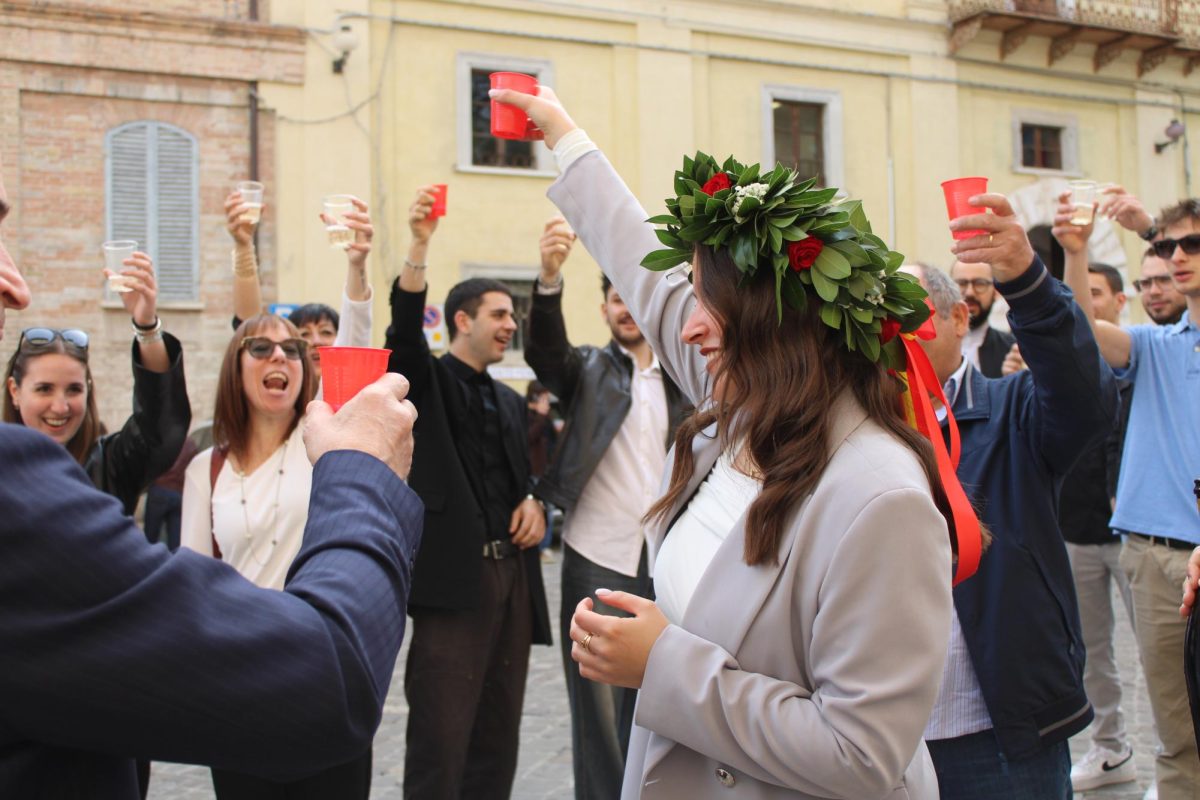TISINGER: Considering the future of journalism
May 20, 2009
I would like to take a moment to offer up public congratulations to my brother, who graduated last week from the college of design with a bachelor’s degree in landscape architecture, and to all those who graduated from other various colleges. Your many years of hard work, missed parties, and all-nighters have led to you an education deemed worthy of a degree and, hopefully, a successful future, though possibly not quite in the field that you have chosen.
The professor at the graduation ceremony for landscape architecture majors, holding back tears as she spoke, granted the students her last advice.
“As Robert Frost said, take the path less traveled, and this path might lead to surprising places. When I graduated into a different recession 20-odd years ago, the dim job prospects in molecular biophysics led me to teach English in China,” said Heidi Hohmann, associate professor of landscape architecture, at commencement. “At the time, I thought I was wandering far astray from my goals, but my diversion eventually led me to landscape architecture, a surprising and satisfying destination.
“By now you’ve learned that holding the pencil too tightly sucks the life right out of a drawing. Well, the same is true of trying to control your existence. If you can embrace the inevitable lumps life gives you, if you can release your white-knuckle grip on the wheel, I guarantee that you’ll embark on a more interesting, if perhaps less linear, journey.”
I felt this advice was valuable, especially in these hard economic times.
In the same weekend, I was given a letter from my sister, a second-grade teacher, that one of her students had written to me. She wrote that she was glad to hear that I am a journalist and that she hopes to become one, too, and would like to know what I believe to be the most important part of becoming a journalist.
At first I had no idea what to reply. Write every day? Read a lot? Ask a lot of questions? I couldn’t exactly tell her to watch the news and read the paper, as she’s so young, so I held off on a response.
I couldn’t help but think about the journalism situation. Everyone in my major is talking about the decline in newspaper sales and the way new media has taken over. People don’t want to read the news anymore — they watch podcasts and subscribe to online news pages, and some people even get the news on their cell phones. Even the Iowa State Daily has revamped its Web site to allow video casts, discussions, links, and more to integrate new media with its printed brethren.
The Greenlee School of Journalism and Communication hosted a panel discussion in April — the day before First Amendment Day — about these changes and how they affect the freedom of the press. Steve Buttry, editor of the Cedar Rapids Gazette, asked those present to wave their cell phones at the beginning of his speech. Looking around the Pioneer Room, almost all had phones to pull out of their pockets and wave with lit screens.
“Just as Gutenberg’s new machine gave new life to the Scriptures, I believe Google, and those machines you waved just minutes ago, will give new life to freedom of the press,” said Buttry. “Print is far from dead, but if papers die because we fail to develop a new business model, I am confident our First Amendment freedoms will carry on in digital communication.”
I really appreciated the way Buttry let us hold on to our own visuals in our hands as he argued this point, and it finally became clear to me that, yes, newspapers and media may be changing, but hopefully we will find a way to put ourselves into some new kind of medium. Our generation has the power to adapt to the new cultures, just as every other generation before us.
The economy may be down, unemployment may be up, and Kindles might be replacing printed books, but my love for black inky fingerprints and the smell of pressed paper will never vanish. I have chosen a career path that is at a crux, a time when we must learn values and tools of the past as well as create a new path for our future. I will remember both the words of Hohmann and Buttry and the reply I’m sending to a little girl named Justice.
I am able to tell her something grand — something so important that it may change the course of her future. I will write to her and give her the greatest advice I can give to any future journalist, or anyone at all for that matter.
I will tell her to take every opportunity that she can to learn and always be willing to try something new, because although I am here at Iowa State for a journalism degree, I know that with an education and this advice behind me, I can and will do anything I want to do.
And that is possibly the greatest news of all.
















